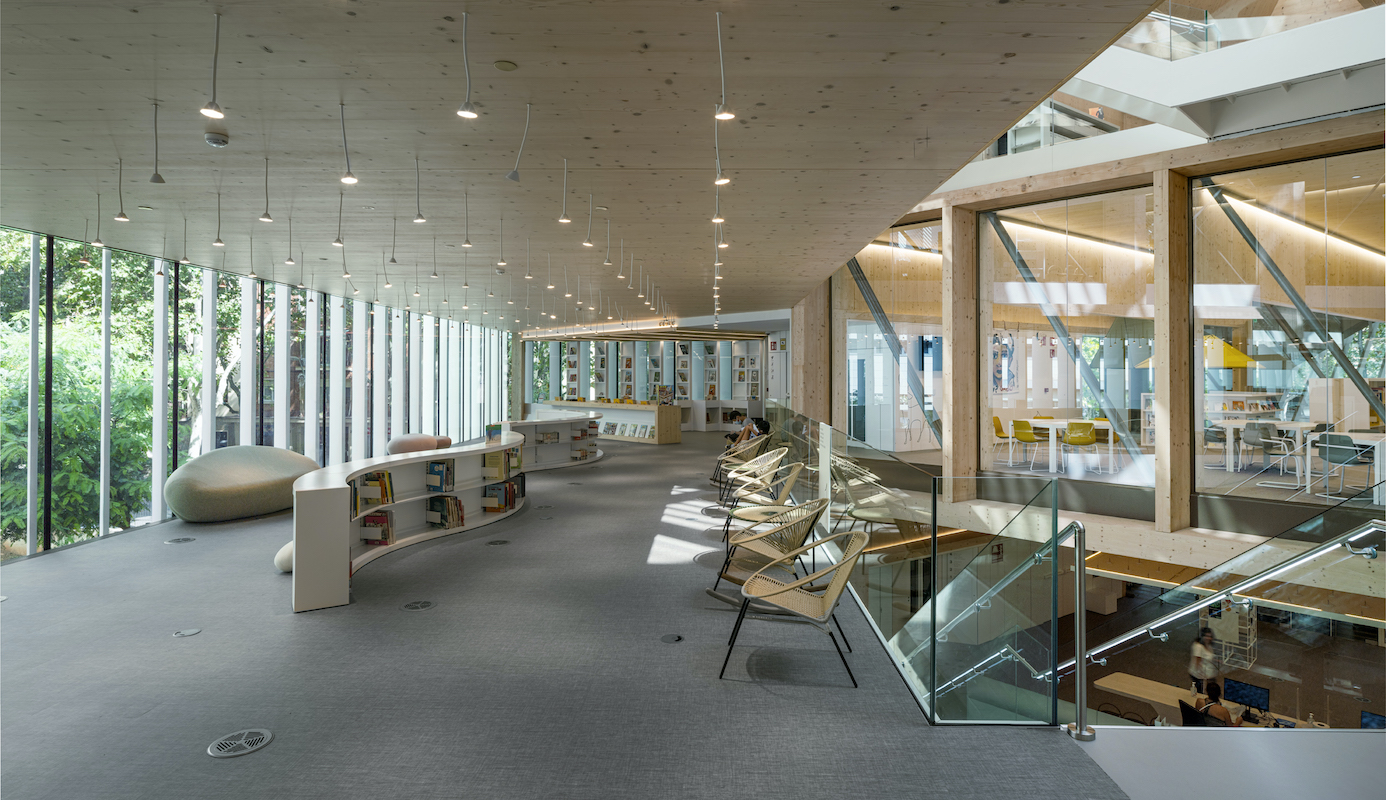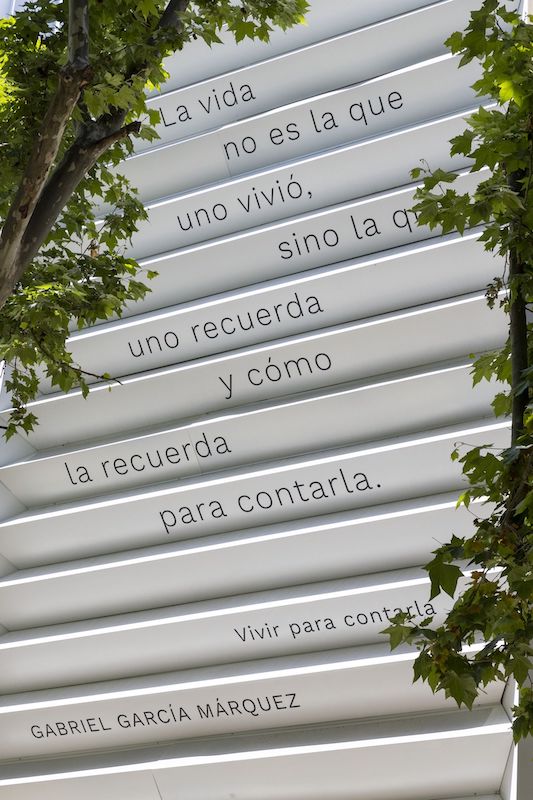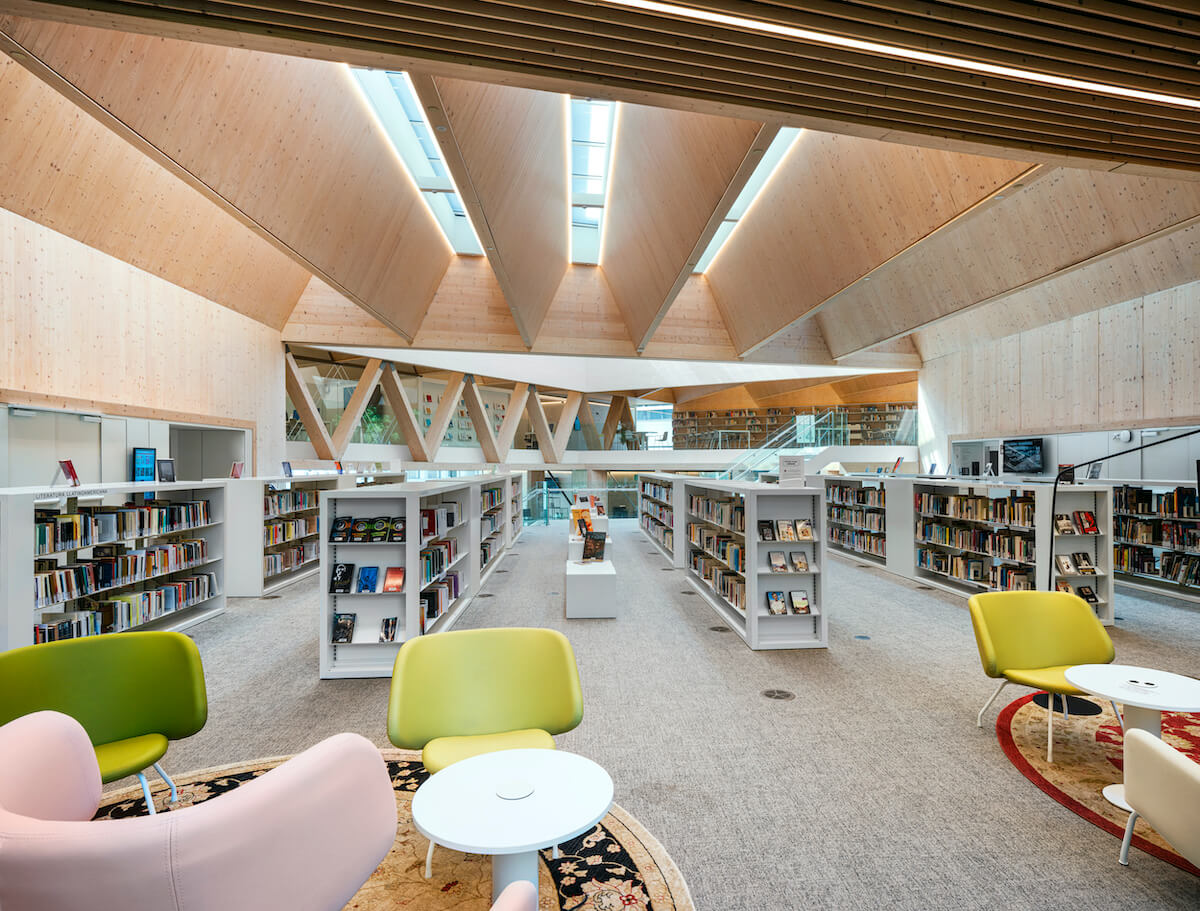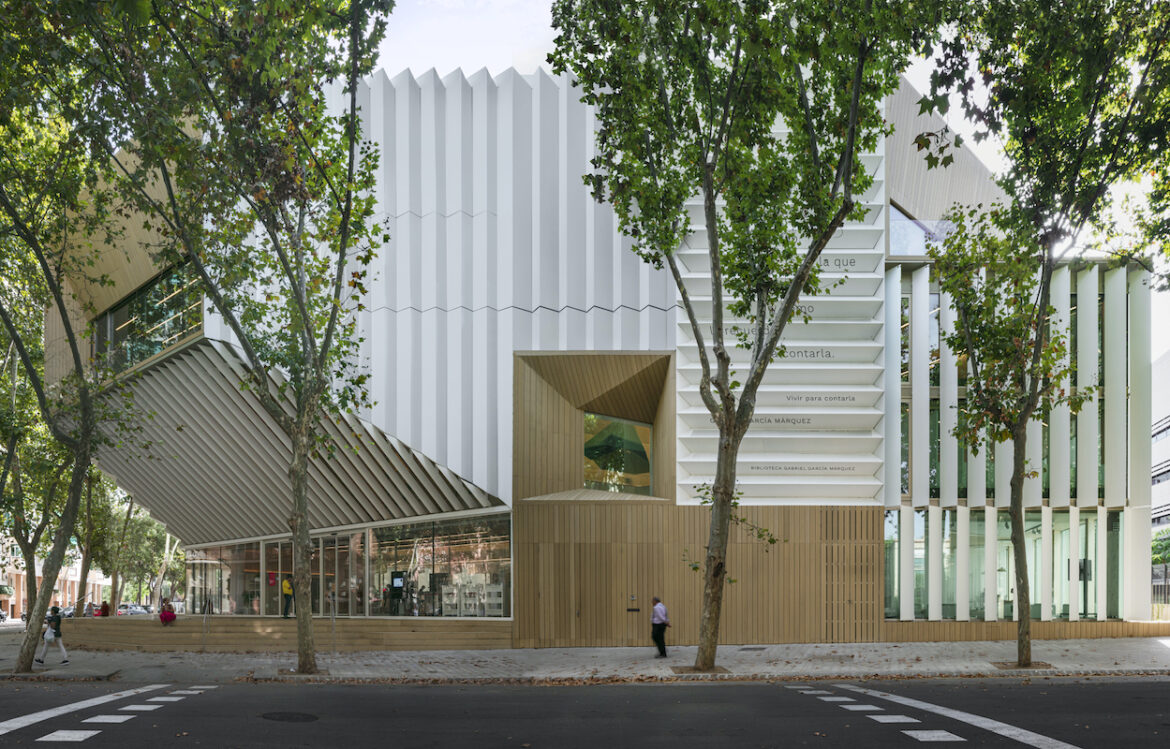The Gabriel García Márquez Library has just been chosen as the best public library in the world in 2023 according to the International Federation of Library Associations and Institutions (IFLA). It thus becomes the first in Spain to achieve this distinction, sharing the title with others such as the U.S. Missoula Public Library, the Norwegian Deichman Bjørvika and the Finnish Oodi Helsinki Central Library.
The award jury valued the Sant Martí facility for its interaction with the environment, the architectural quality of the building, the flexibility of the spaces and its sustainability. The Barcelona library, directed by Neus Castellano, competed with the Janez Vajkard Valvasor Krškov Public Library (Slovenia), City of Parramatta Library (Australia) and Shanghai Library East (China).
“The García Márquez in Sant Martí exemplifies the best of libraries in Barcelona,” said the City Council’s Commissioner for Culture, Xavier Marcé, who recalled that more than 30 years ago the City Council initiated a cultural policy, accompanied by the Diputació, to develop a powerful library network that is now internationally recognized. “We are a city with more than 40 public libraries that are cultural facilities that play a reference role throughout the district and the city,” added Marcè, “this recognition is essentially a sign of acceptance and admiration for the library model of the city.”

Inaugurated just over a year ago after an investment of 11.4 million euros and becoming the 40th library in Barcelona, the García Márquez library receives more than 1,000 people a day, lending out almost 130,000 books and issuing more than 6,000 new library cards. It stands imposing as if it were that block of stacked books that many people have on their bedside table. The building designed by architects Elena Orte and Guillermo Sevillano (Suma Arquitectura) has drawn a chamfer that opens to the neighborhood, creating a new cultural and neighborhood pole, on the corner of Treball and Concili de Trento streets, very close to Rambla de Guipúscoa.
The best public library in the world is dedicated, as its name suggests, to Gabriel García Márquez, author of such classics as One Hundred Years of Solitude, Love in the time of cholera, Chronicle of a death foretold y The Colonel has no one to write to himtitles that can be found in various editions and languages on its shelves. Barcelona wanted to pay tribute to the Latin American writer and Nobel Prize for Literature, who lived in the Catalan capital from 1967 to 1975, attracted by the literary agent Carmen Balcells. That is why the square in front of the library bears his name, establishing a dialogue between the two friends.
With a collection of 40,000 titles, the facility specializes in Latin American literature, from classics such as García Márquez to younger authors. It also organizes events to spread Latin American culture such as the KM America. Latin American Literature Festival, now in its second edition. It is even the headquarters of Radio Maconda, an initiative to disseminate the activity of Barcelona’s libraries, with a nod to one of the scenarios imagined by the Nobel Prize for Literature.

However, a resident of Sant Martí as Francisco Ibañez, recently deceased, also has his space in this library. The cartoonist has a collection of about 500 titles, among which you can find Mortadelo and Filemón comics, but also other characters such as Botones Sacarino, Rompetechos and all the comics of the number 13 of Rue del Percebe.
But the García Márquez library, winner of the City of Barcelona Architecture Award 2022 and finalist for the FAD Architecture Awards 2023, also attracts attention for its design, so much so that even the neighbors compare it to the Guggenheim in Bilbao. With an area of almost 4,000 square meters, it is the third largest library in the city, only behind Jaume Fuster (Gràcia) and Ignasi Iglésias-Can Fabra (Sant Andreu), and it is eleven times larger than the one it has replaced in Sant Martí.until recently the smallest in the city.

The building is built from a central courtyard that connects its six floors, in addition to giving them natural light, with a wooden structure that wants to be sustainable and welcoming, to make its tenants feel at home. The same sensation is transmitted by its interior, full of plants and even with hammocks where you can lie down to read.
But the García Márquez library also attracts attention for its design, so much so that even the locals compare it to the Guggenheim in Bilbao.
The first floor is intended for more social uses, with an auditorium, inner courtyard and the Radio Maconda studio, while the second floors hold the collection, with low shelves to relax and look at the trees surrounding the building. On the floor dedicated to children’s and young people’s books, there is a sensory space where you can start your reading career by experiencing the stories in a more intense way, playing with sound, light and temperature. Above all, a terrace and a more secluded space in which to study and work. And, in times of heat waves like these, spaces like the García Márquez become climatic refuges for many, as well as the gateway to unimaginable worlds for those who do not have it so easy to have books at home.



















